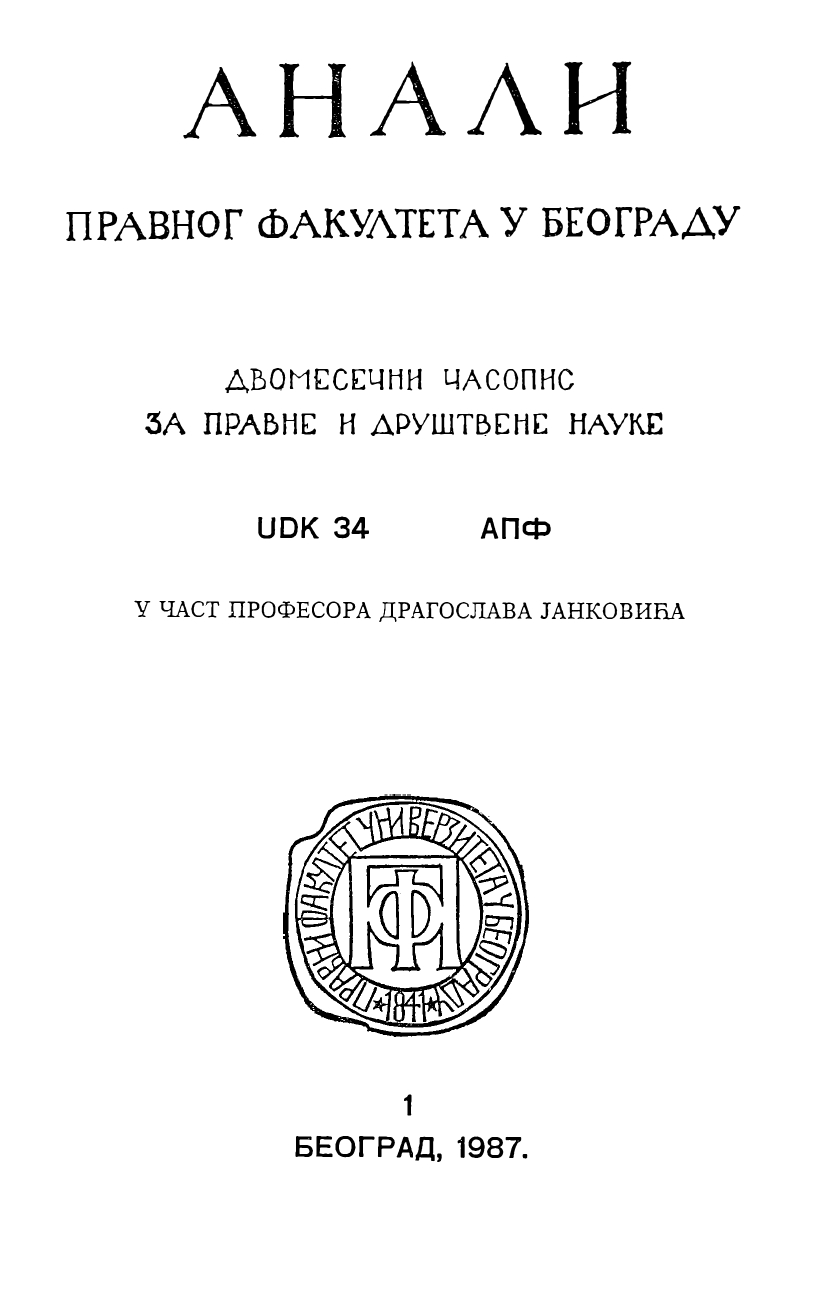О ПРЕДИСТОРИЈИ КОНКОРДАТА СРБИЈА — ВАТИКАН (1881—1914)
THE BACKGROUND OF THE CONCORD BETWEEN SERBIA AND VATICAN (1881—1914)
Author(s): Mirko R. MirkovićSubject(s): Law, Constitution, Jurisprudence
Published by: Правни факултет Универзитета у Београду
Summary/Abstract: The author considers essential political and legal elements of the background of the Concord between Serbia and Vatican, which was concluded on June 24, 1914, The author begins with the essential facts, namely that Serbia acquired its independence in 1878. This the conditions became ripe in the sphere of law also for annulling the protectorate of Austria- -Hungary over the catholics in the Serbian state area, so that on such ground and with that basic goal the idea on concluding a concord had emanated between Serbia and Vatican. The first stage of exchange of opinions on the contents and possible dimensions of such an agreement has lasted — with successive interruptions — from the eighties and up to the end of the nineteenth century. In relation to that stage, the author particularly considers the favourable initiatives of bishop Štrosmajer as far as the concord was concerned, as well as the attitude of the official Serbia, the reaction of Serbian general public, and the analysis of relevant parts of the Serbian legislation. In relation to that the author points out that the catholic question in Serbia developed and became critical in two ways: national (domestic) and foreign policy one, but it, however, remained unsolved. The essential reason for that was insufficient capacity of Serbia to reach the concord. Considerable changes in this sphere emerged since the Balkan Wars (1912—1913). Serbia’s strategic position was strengthened. It became able to perform operations which would lead to the concord in order to liquidate the Austro-Hungarian protectorate in the field of religion on its soil. Since 1912 and up to the beginning of 1914, when formal negotiations over the concord have begun, the second stage took place of the considered background. In this part of the article the following is particularly stressed and evaluated: intensive and public activity of Serbian Government in favour of the concord, which also applies to a part of news media of the time, but, on the other hand, the anti-concord attitude of the Orthodox Church. Following are the conclusions: the ideas of Serbian Government dominated over the domestic and external (particularly Austro-Hungarian) oponents; these ideas has multiple strategic values in the actual moment, as well as for the future; and they induced the Pontiff's Curia, while even sacrifying the mentioned Austro-Hungarian religious protectorate, to engage with Serbia in a more decisive way in negotiations which would eventually bring up the concord itself.
Journal: Анали Правног факултета у Београду
- Issue Year: 35/1987
- Issue No: 1
- Page Range: 49-62
- Page Count: 14
- Language: Serbian

